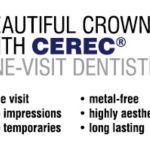Understanding Tooth Cleaning Procedures for Better Oral Health
- Why Tooth Cleaning Is Important
- Types of Tooth Cleaning Procedures
- How to Prepare for a Tooth Cleaning
- The Benefits of Regular Tooth Cleaning
Why Tooth Cleaning Is Important
Tooth cleaning is an essential part of maintaining good oral health. While regular brushing and flossing help prevent plaque buildup, professional cleanings performed by a dentist or hygienist are crucial for removing hardened plaque (tartar) and ensuring that your teeth remain free of harmful bacteria. Without regular cleanings, plaque can lead to tooth decay, gum disease, and even tooth loss over time.
Types of Tooth Cleaning Procedures
There are several types of professional tooth cleaning procedures that can be performed depending on the needs of the patient:
- Routine Teeth Cleaning: This procedure typically includes a cleaning where the dental hygienist removes plaque and tartar from your teeth using special tools. This is followed by polishing to give your teeth a smooth, clean finish.
- Scaling and Root Planing: Often performed if you have signs of gum disease, this deeper cleaning removes tartar from below the gum line. Scaling and root planing can prevent further damage to your teeth and gums.
- Deep Cleaning: A more intensive cleaning procedure, often necessary for individuals who have significant plaque buildup or gum disease. This procedure targets both the teeth and gums, helping to treat periodontal disease and improve overall oral health.
- Polishing and Fluoride Treatment: After the cleaning process, some patients opt for fluoride treatment to help strengthen tooth enamel and protect against cavities.
Choosing the right cleaning procedure depends on your oral health and the recommendation of your dental professional.
How to Prepare for a Tooth Cleaning
Preparing for a tooth cleaning is simple but important to ensure that the process goes smoothly and that your oral health is thoroughly assessed. Here are some tips to help you get ready:
- Be Honest About Your Oral Health: Let your dentist or hygienist know if you have any concerns or experience symptoms like bleeding gums, pain, or sensitivity. This information helps them choose the best approach for your cleaning.
- Brush and Floss Before Your Appointment: While the hygienist will clean your teeth thoroughly, brushing and flossing before your appointment helps make the process easier and gives the dental professional a clean surface to work with.
- Be Prepared for Questions: Your dentist will likely ask about your habits, such as smoking or diet, which can impact your oral health. Being open with your dentist will help ensure the best care.
By following these simple steps, you can ensure that your tooth cleaning is as effective as possible and that any underlying oral health issues are identified early.
The Benefits of Regular Tooth Cleaning
Maintaining regular tooth cleaning appointments offers numerous benefits beyond just a brighter smile. Some key advantages include:
- Prevention of Tooth Decay: Regular cleanings help to remove plaque and tartar that can contribute to cavities, protecting your teeth from decay.
- Reduction in Gum Disease: Professional cleanings remove bacteria from under the gum line, which can reduce the risk of gingivitis and more severe gum disease.
- Improved Overall Health: Regular tooth cleanings contribute to better overall health by preventing bacteria from entering your bloodstream, reducing your risk of heart disease and other systemic conditions.
- Better Breath: Removing plaque and tartar also helps to reduce bad breath caused by bacterial buildup in the mouth.
Regular tooth cleaning procedures are a key part of preventive care, keeping your teeth and gums healthy while addressing any oral health issues before they become more serious.
If you're interested in professional tooth cleaning procedures and want to learn more about maintaining optimal oral health, visit Dentistry Toothtruth to book your appointment today and keep your smile shining bright!







 Kid's Choice Dental - Tacoma4.0 (232 review)
Kid's Choice Dental - Tacoma4.0 (232 review) Motto Clear Aligners0.0 (0 review)
Motto Clear Aligners0.0 (0 review) Robison Dental Group4.0 (197 review)
Robison Dental Group4.0 (197 review) North Park Family Dental: Dr. Michelle Kline4.0 (25 review)
North Park Family Dental: Dr. Michelle Kline4.0 (25 review) Bellingham Dental Arts4.0 (27 review)
Bellingham Dental Arts4.0 (27 review) Smile Care Dental Associates: Dilip Patel DDS4.0 (5 review)
Smile Care Dental Associates: Dilip Patel DDS4.0 (5 review) The Importance of Oral Health Education During Pregnancy for a Healthy Pregnancy
The Importance of Oral Health Education During Pregnancy for a Healthy Pregnancy Best Tips for Brushing Your Teeth Properly for Healthy Gums: Essential Techniques for Oral Health
Best Tips for Brushing Your Teeth Properly for Healthy Gums: Essential Techniques for Oral Health Why Skipping Dental Checkups Can Lead to Bigger Oral Health Problems
Why Skipping Dental Checkups Can Lead to Bigger Oral Health Problems Advantages of Porcelain Dental Restorations
Advantages of Porcelain Dental Restorations How Can Diabetes Cause Tooth and Gum Problems? Preventing and Managing Oral Health Issues
How Can Diabetes Cause Tooth and Gum Problems? Preventing and Managing Oral Health Issues Healthy Habits for Promoting Good Oral Health and Hygiene: Tips for a Healthy Smile
Healthy Habits for Promoting Good Oral Health and Hygiene: Tips for a Healthy Smile